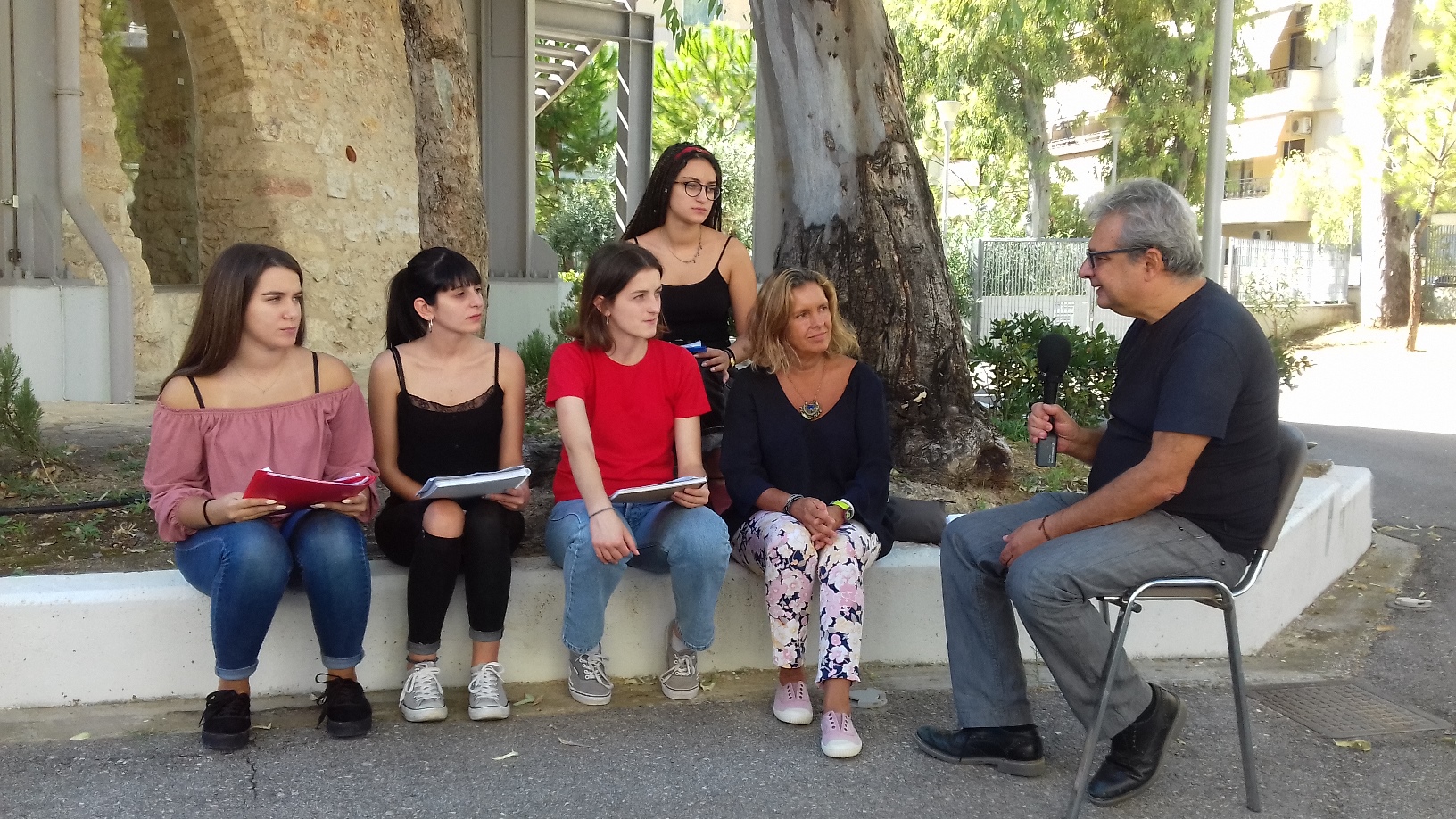
Interview with
mr George K. Kouvaras
journalist - war correspondent
First of all, I would like to thank you for your invitation. After all, the Erasmus program is very useful, as, I, myself have travelled a lot, visited a number of countries using different programs each time
How did you choose this job?
To begin with, I have to confess that being a journalist was an unexpected decision. The time I made up my mind I was in Brussels attending a university course on architecture. It was then that I started writing articles concerning the European union. During that period Greek television started showing programs on private tv channels, such as Mega Channel, where I worked for the very first time.
What does it take to do your job, become a war correspondent?
To become a war correspondent is really difficult. You should have this element.. called adrenaline. You should try harder and harder knowing where you’re about to go, what you’re about to search and most significantly, the difficulties you’re about to meet. You should learn how to protect yourself when covering a war documentary. Moreover, it’s absolutely necessary to be fully aware of what lies behind a particular war. This kind of situation is totally thrilling!
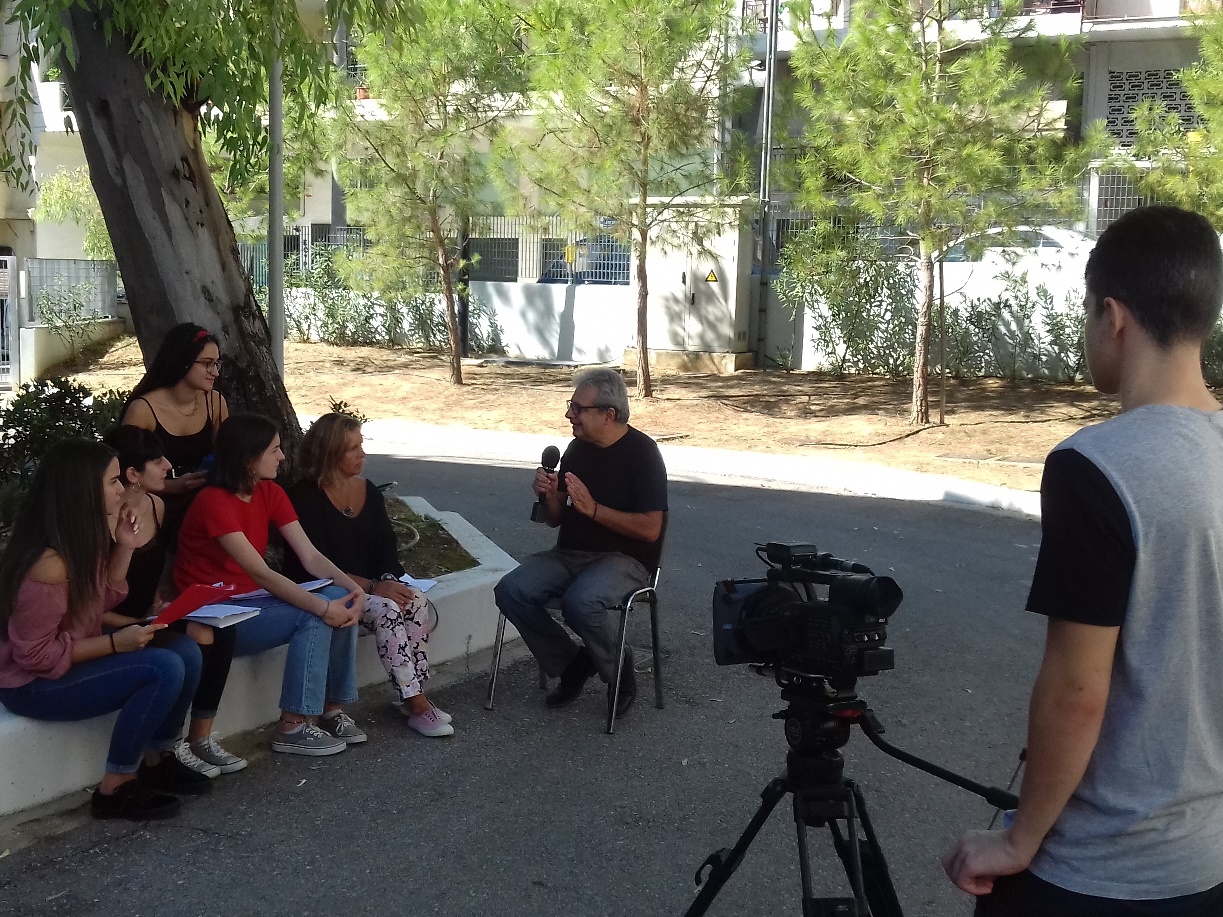
What are your feelings when doing a war documentary? How do you stand horror, death?
I never accepted the horror and I will never get used to it. I saw dead bodies and it was not a beautiful spectacle, I had nightmares at nights. It truly is horrible. However, you need to take distances, you're there to give information, you do your job without thinking. Then it becomes more difficult because the images emerge. This is when you perceive reality. You see things not just as a reporter but also as a human. For example, on the one hand you may witness a hostage being tortured and not be able to interfere. On the other hand, I recall coming across a mother who was trying to escape with her child during a bombardment and I was able to save her by transferring her at the reporter's shelter.
While on mission, are you afraid? How do you manage the fear of death, the loss of your loved ones?
You should have the sense of fear, it's the only way to protect yourself. You need to feel the danger. We're talking about war with real bombardments. You need to pull through. I'm scared, I have a family, I'm on my own and nobody will be able to help me. I want to make a documentary, not to die. Fear is instinctive, when you hear gunshots, bombs you're terrified, you can't rush in the front line to have a good footage. You have to follow the instructions of the Blue Helmet so yes, fear can stimulate you and protect you.
In your missions so far, was there threat for your life? Was it ever necessary to abandon your whereabouts to be more secure?
Yes I was threatened. While on mission, you have to be in constant alert in order to avoid difficult situations. You have to locate safe places where you will be protected.
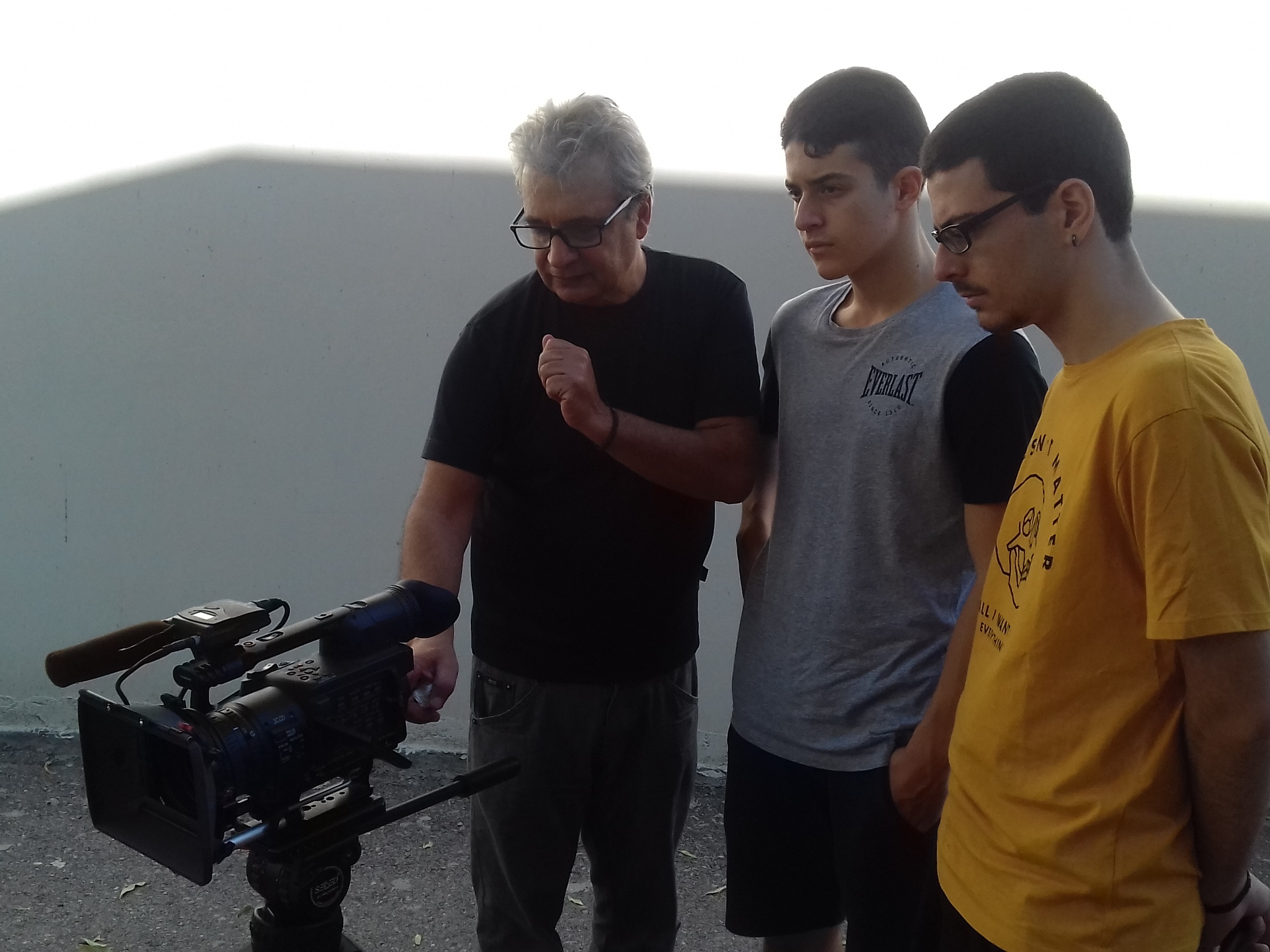
How did you feel the first time you did a war documentary?
I was at the war of Yugoslavia. I tried to cover this documentary as objectively and from as many sides I could, although I don't believe that the reporter's perspective could be as objective as it should. I found myself at the beginning of this war, before the clash of NATO began. Decisions were made in Brussels where the diplomatic negotiations started taking place, with Milosevic. I was there at March of 1999 with Javier Solana in Aviano and I saw the first airplane that took off to strike. That marked the beginning of the war at Yugoslavia. After this I went to Belgrade and Kosovo for the needs of the documentary.
Would you share with us an experience that marked your career?
On 23rd of April 1999 in Belgrade, the Allies of Serbia bombed the Serbian state radio-tv center. Sixteen of my coworkers (journalists and technicians) were killed. This was a great shock for me. It was a matter of luck that I wasn’t there. I will never forget it. Actually, every year around 50 reporters, even more, are killed during their missions. In my case I was extremely lucky. Maybe my fate was good cause at that day I was celebrating my name day!
Can you share with us your objective reporting on what causes conflict zones and wars?
It is all about various interests and mainly economical ones. For example, the invasion on Iraq was about controlling oil resources. The war in Yugoslavia happened due to ethnic cleansing provoked by underground groups in Kosovo and Bosnia-Herzegovina.
How do you prepare before going on a mission? What kind of information do you gather?
Preparing is very important. It’s more than collecting information about the conflict zone. Appart for studying and understanding what is going on you need to find your sources. The most important is that you need to find you fixer. I mean that, you need to find someone who speaks the local language to be your translator, someone who knows what’s is going on and get you involved too. For example, while reporting for a terrorist attack of ETA in Basque country I needed to find someone we spoke both Spanish and Basque and knew information for both sides. Actually, in this particular situation my fixer’s help had a critical contribution in the outcome of my mission.
Have you ever reported on a migrant crisis? Have you followed refugee trails? Have you ever visited refugee camps?
From the very beginning of my career in journalism I have reported on migrant flows. I recall being in Africa and witnessing many incidents of population movement in Mali and Congo. These were mainly incidents of economic immigrants. The last decade migration has grown enormously worldwide. The peak of course occurred the last three years with Europe's migrant crisis as the biggest influx of migrants and Syrian refugees. I’ve visited refugee camps in Greek islands who are receiving a large number of refugees. I have also been onboard at Frontex’s boats, while collecting shipwrecked refugees close to Lesvos’ coasts. As a matter of fact these experiences were more intense and terrifying than those in war.
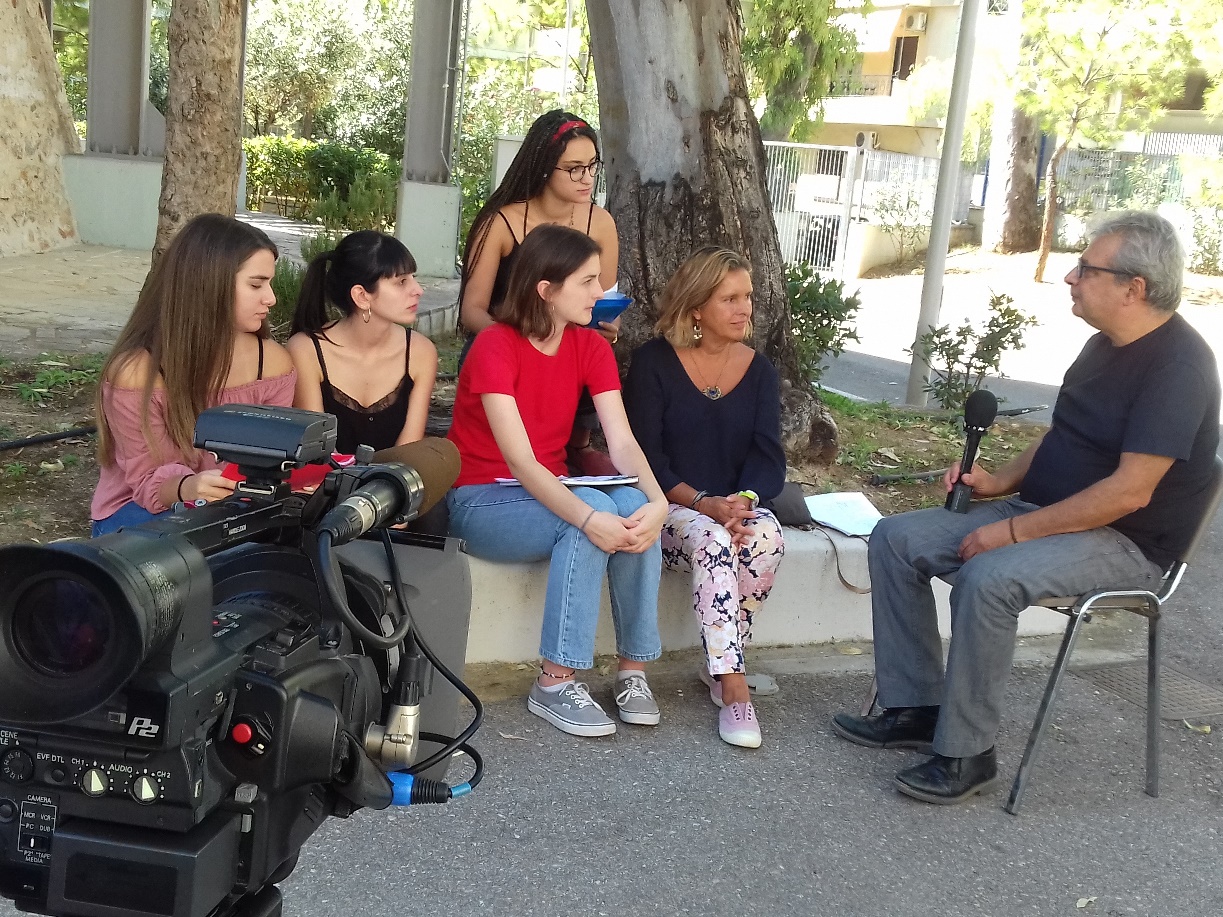
How is your family's equilibrium affected from your big absences?
While you are in a conflict zone you can never be sure for your safety. Although there were numerous occasions that I tried to to hide it from my family it is inevitable that they worry about me. So definitely, yes, my family’s sense of balance is affected by my absence. Not only in cases of war...in every case that entails risk.
While on mission, how do you cope being a stranger in a strange land?
In my opinion, when you travel somewhere you have to mingle with local people and immerse yourself in their everyday life. So, I try to prepare beforehand by studying their history and culture. In this way I can adapt to their customs, lifestyle and habits. It certainly eases my communication and integration with locals
Have you made friends during your missions as a war correspondent?
When you are in situations exposed to danger, you desperately need people who support you and you feel that you can rely on them. In this way, strong friendships are built. I’ve made a lot of friends, Greek colleagues as well as people from foreign countries. I consider these friendships as the best part of my job.
Would you suggest to a young person to follow your career?
No, although it’s an interesting job, it’s really dangerous
Some documentaries for migration incidents produced by mr Kouvaras are the following:
Watch the video of the interview with the journalist - war correspondent, mr George K. Kouvaras below:
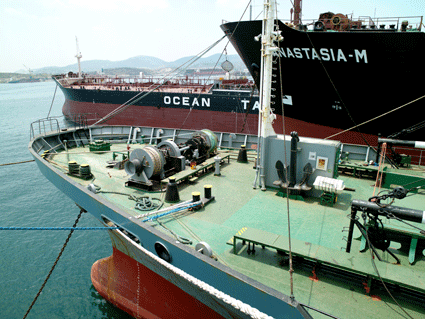
Interview with S.P. a seafarer - second engineer
Working as a ship’s crew is not an ordinary job. How did you end up following this occupation? What is it exactly that do you do on a ship?
Greece is a country full of islands. Our life is directly connected to the sea. We love the sea. Ιt gives us both fun and work. Of course, the most determinant factor for someone to follow a marine occupation is that it involves good salaries and a lot of adventure! My occupation on a ship is called "second engineer" and it is about supervising the maintenance and operation of a ships' engine department. I've mainly worked on cargo ships.
In Greek islands we often see small churches dedicated to Saint Nicholas, the patron saint of the seamen. Is sailing so dangerous that you feel like needing a miraculous protective power?
In the past, seagoers were exposed to a high level of danger and asking for divine protection made some sense. Nowadays, rationally speaking, we don’t need a miraculous power to protect us since all modern ships have advanced electronic systems as well as weather forecasting devices. Unless we exclude the factor of a human mistake, ships are actually very safe and can withstand difficult weather conditions.
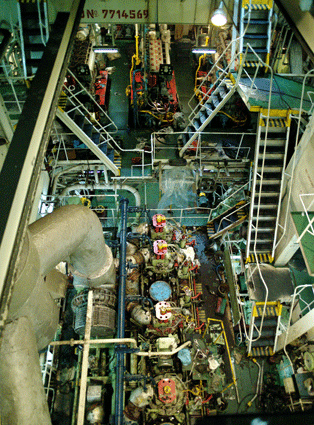
We are increasingly hearing at the news about incidents of modern maritime piracy. Do you feel threatened by modern pirates?
The myths and legends about pirates with wooden legs and hooks has given way to modern pirates who are equipped with powerful weapons of the latest technology. There are marine areas that are indeed very dangerous for seafarers and anyone who sails in these waters is at high risk. Somali pirates in the Red Sea, for example, tend to caprure ships and ask for a ransom to release the crew and return the cargo. I suggest that you watch the excellent movie "Captain Philips" that Tom Hanks is starring and is base on a true story about a ship's hijack by Somali pirates. This is not the worst case scenario. There are incidents reporting that Nigerian pirates who are fanatical Muslim extremists weren’t satisfied with the ransom they got and they killed the captives!
Of course, there are ways to deal with piracy. The international marine community issues sea and air patrols in dangerous areas. In addition, technology is being used to combat pirates with ships being equipped with anti-piracy systems and crews are specially trained in dealing with such situations.
Do you feel that your family’s relationship is affected by your long absence from home?
A seafarer’s family has indeed some peculiarities. A direct impact of the long periods of a seafarer’s absence is that the male, who is traditionally the head of the family, is replaced by his wife who inevitably takes over all the responsibilities for everyday life. As far as the relationship between the spouses is concerned, many people believe that long distance relationships never work out. In my opinion, compared to ordinary couples, all it takes is just an extra mutual trust among the couple.
Due to your job, you have travelled to foreign countries and get acquainted with different cultures. Pls share with us what impressed you in those cross-cultural encounters.
There are so different standards of living in the world. Although statistics may be harsh noting that the daily pocket money of an American teenager equals the family’s budget in Asia or in Africa, you can’t realize it unless you see it in person. Witnessing the huge gap among the co-called rich and poor countries is pretty impressive. See for yourself the poverty is a rather shocking experience especially when it involves little children who, for example, are exposed to prostitution. What’s more, I find fascinating experiencing the traits of some nationalities. The Indian nirvana, the easy-going Brazilian lifestyle, the Japanese workaholism.
Have you ever thought of changing your career?
While on board, a lot of seafarers envy “settled” jobs on shore. But while on shore you miss the sea. Even if your life expectations are not met it’s all about the journey and you just redefine your destination, like Kavafis is expressing in his poem “Ithaca”:
As you set out for Ithaka
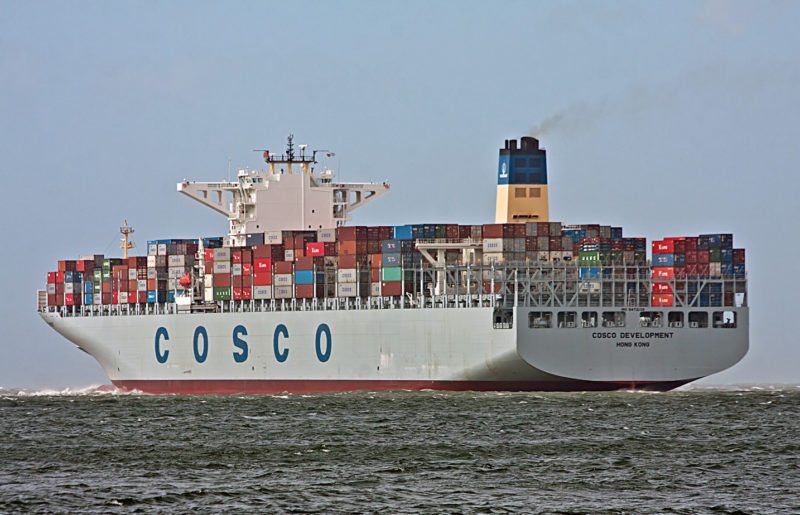
hope the voyage is a long one,
full of adventure, full of discovery.
Laistrygonians and Cyclops,
angry Poseidon—don’t be afraid of them:
you’ll never find things like that on your way
as long as you keep your thoughts raised high,
as long as a rare excitement
stirs your spirit and your body.
Laistrygonians and Cyclops,
wild Poseidon—you won’t encounter them
unless you bring them along inside your soul,
unless your soul sets them up in front of you.
Hope the voyage is a long one.
May there be many a summer morning when,
with what pleasure, what joy,
you come into harbors seen for the first time;
may you stop at Phoenician trading stations
to buy fine things,
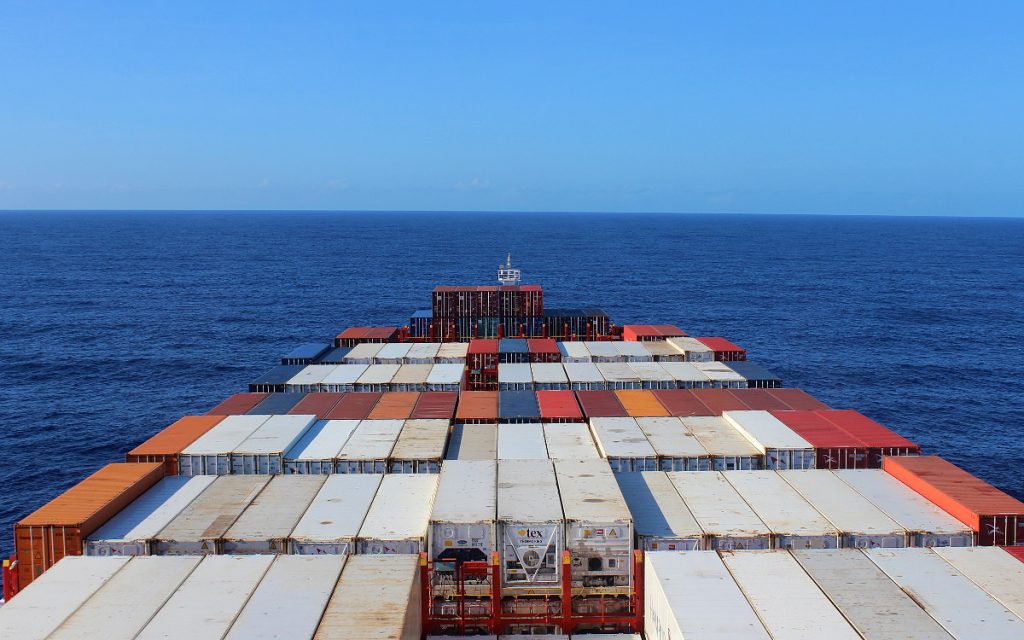
mother of pearl and coral, amber and ebony,
sensual perfume of every kind—
as many sensual perfumes as you can;
and may you visit many Egyptian cities
to gather stores of knowledge from their scholars.
Keep Ithaka always in your mind.
Arriving there is what you are destined for.
But do not hurry the journey at all.
Better if it lasts for years,
so you are old by the time you reach the island,
wealthy with all you have gained on the way,
not expecting Ithaka to make you rich.
Ithaka gave you the marvelous journey.
Without her you would not have set out.
She has nothing left to give you now.
And if you find her poor, Ithaka won’t have fooled you.
Wise as you will have become, so full of experience,
you will have understood by then what these Ithakas mean.
Following mr S.P. suggestion to watch the movie "Captain Philips" we spoted its trailer in https://youtu.be/GEyM01dAxp8
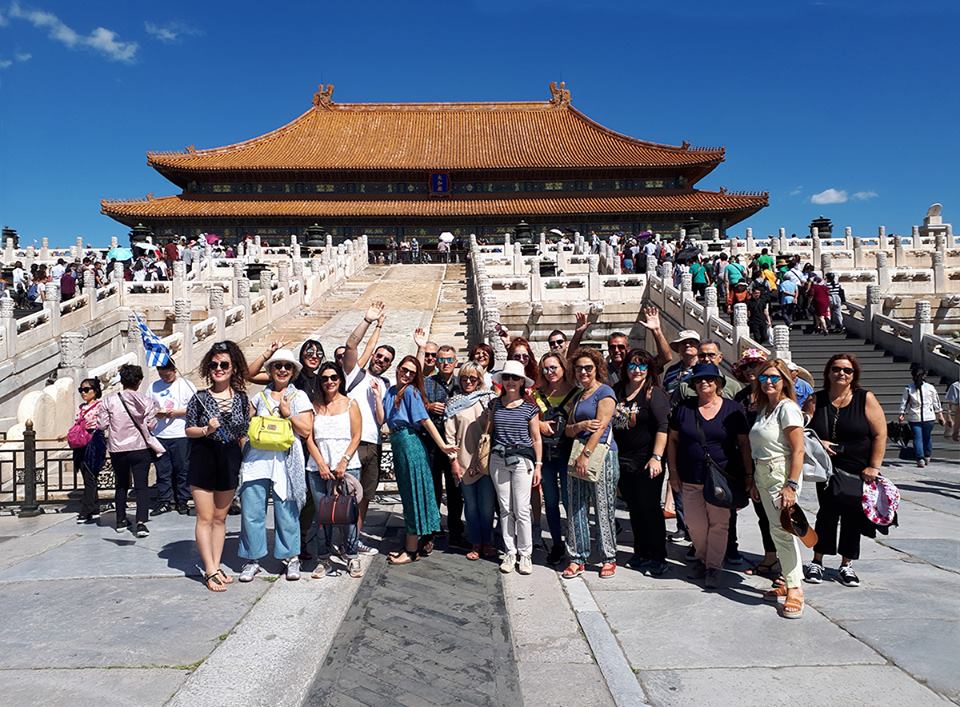
Interview with J.S. a tour guide
What is your occupation? How long have you been doing this job?
I work as a tour guide for about 20 years.
What intrigued you in the first place to follow this occupation? Do you still feel the same? Do you still enjoy your job?
The most intriguing part of my job has to do with traveller's satisfaction which undoubtedly is the outmost feeling of preparing a new trip, especially for challenging destinations. After visiting more than 130 countries all over the world, I have to admit, this is the prevailing feeling among others. Guiding groups is not an easy task but it becomes much enjoyable when you receive joy and compliments from your customers regarding your travelling skills and efficiency. Clearly, I enjoy doing this job besides any negative consequences with regards to my personal life.
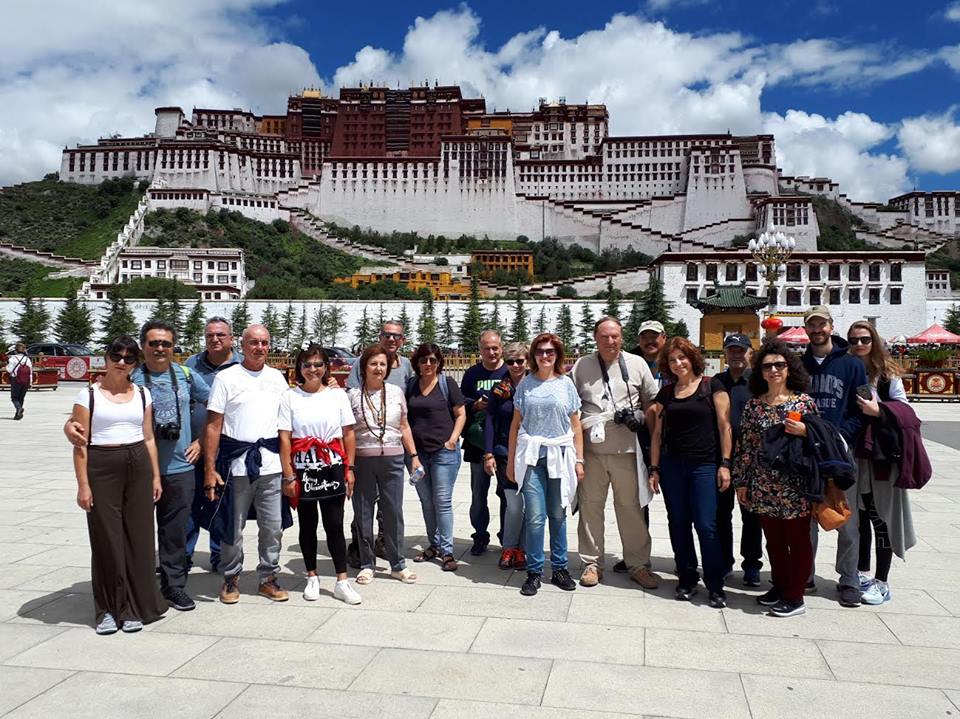
Can you briefly describe your work requirements? …. Since your work includes other people’s vacation, do you also have the feeling of being on vacation?
When I first started working as a group guide, I was not so organised as most of my experienced peers. Soon I realised how important it is to be prepared before the trip. Meaning, that I have to thoroughly analyse every moment of the trip in the first place, in order to avoid any further inconvenience and cause unpleasant situations to my customers. Being prepared and always alerted is the key to my job in ensuring happiness and unforgettable moments to the people who want to enjoy themselves and are looking for an intervention in their routine. Under this scope, I have to say that I don't really much find myself of being in vacation while working.
Do you feel that your work involve some kind of danger for your life?
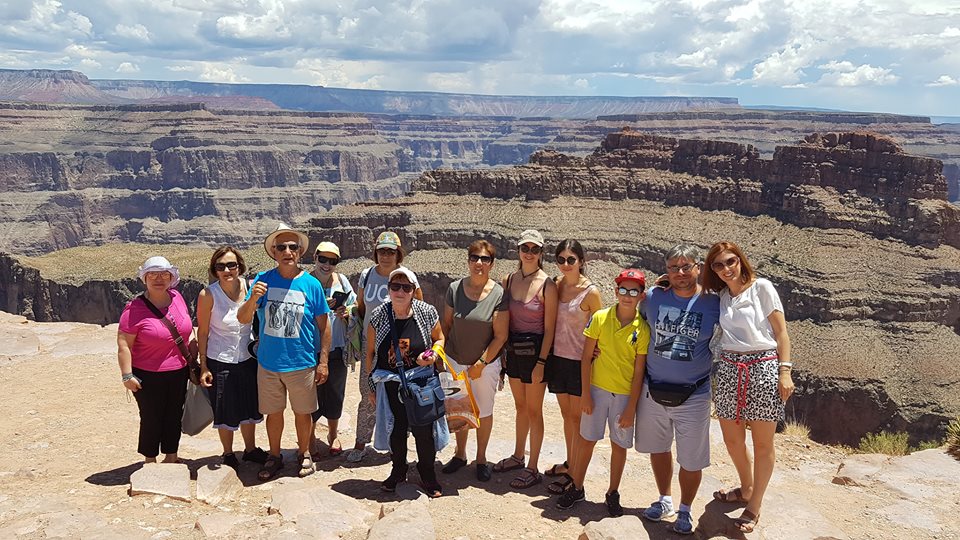
Have you ever felt threatened and vulnerable being away from home?
It would be great mistake either not to acknowledge or underestimate my job's dangers. You never know how big or small maybe a potential threat and what would be the impact unless you are always prepared and alerted for the unexpected. Like many jobs around, you have to evaluate and manage all the upcoming risks with emphasis to security and safety of the groups that I am accompanying. Personally, in my career I’ve had a lot of incidents that I was at risk. I had to deal with them feeling vulnerable and unprotected, but I always had had faith to my strong beliefs of surviving and overcoming any unwanted situations.
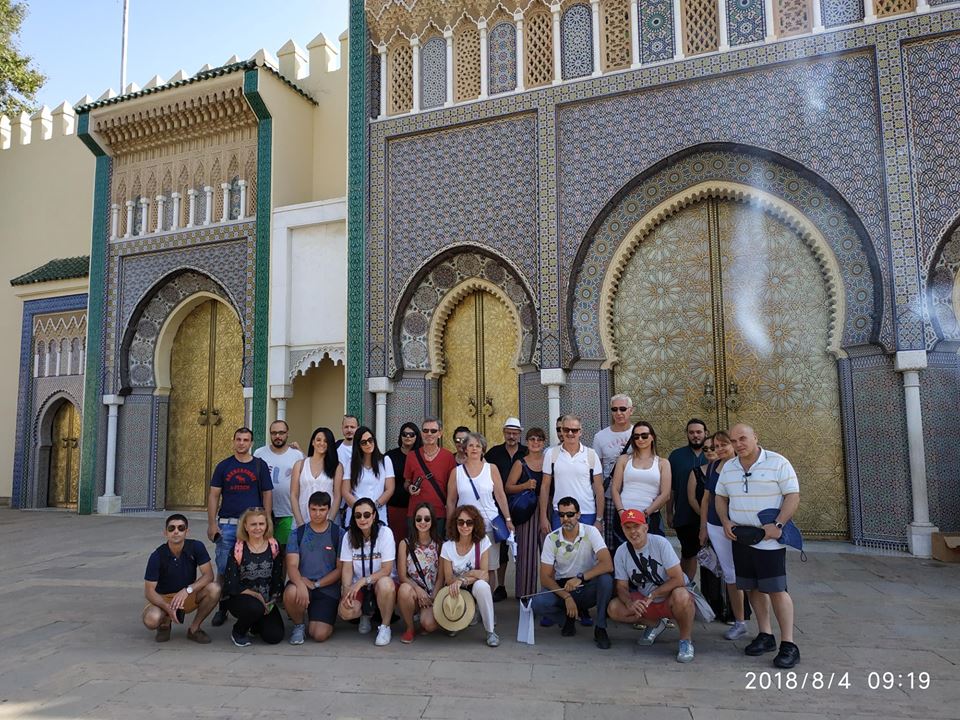
Do you consider that your health is affected by your work (e.g. sleeping schedule, stress, jet lag)?
Of course, there are times when that I haven’t slept for more than 24 hours but this rarely affects me as I become more experienced and my decisions are made by forecasting potential serious issues and situations. Stress is not an issue when you really are fulfilled with your work and I am quite used to jet lags which are not disturbing to me any more.
Where do you live? Which place do you consider as your home?
Planet Earth is my home !!!. But if you mean my home town, this is Athens and I have to say, I'm very proud for my country and its history.
In annual basis, how long are you required to be away from home? Pls give us an indicative percentage of time.
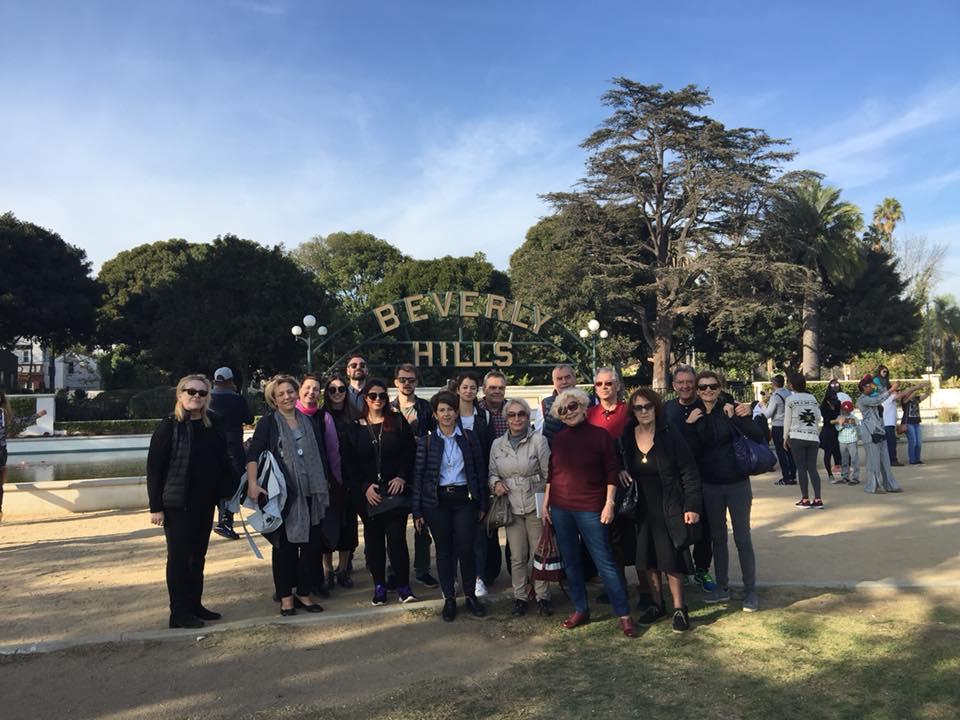 I would say for more than 70% annually, I work away from home. The longer periods are during summer and christmas vacations.
I would say for more than 70% annually, I work away from home. The longer periods are during summer and christmas vacations.
Do you consider that being away from home demands personal “sacrifices”? Does it affect your personal life/relationships?
It’s true that it’s challenging. You “sacrifice” some relationships. It used to be harder when there was no skype though. But on the contrary, making friends all over the world, helps me thinking that I live something special that not all people have the chance in experiencing.
Do you feel lonely and/or homesick? If yes, how do you deal with it?
I don't feel lonely because I have a lot of friends around the world who are there for me in case I need any help. I don’t really feel homesick and I am used being away from home. But you have to consider that I’m not married and apart from friends I just have a few relatives back home.
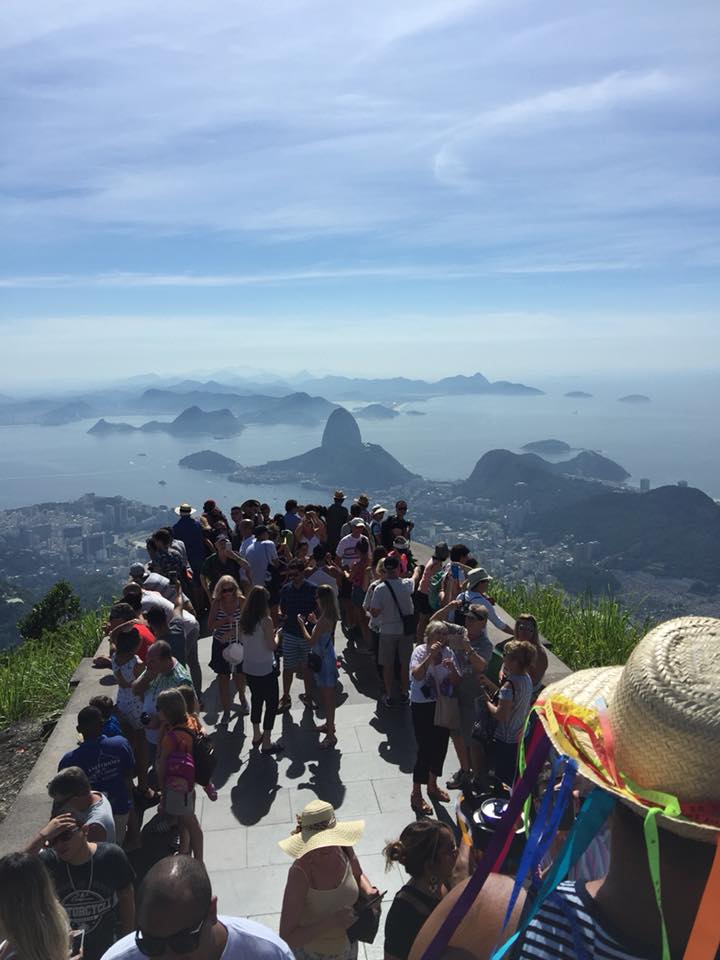
Do you have transnational friends? Do you maintain friendships?
As I mentioned before, I have many friends globally and with social media services I can say it's pretty easy to contact them anytime, anywhere.
Considering the broad definition of a migrant as a person who moves to work from place to place, do you consider yourself a migrant?
I suppose so. Precisely, I would say I 'm being constantly in a mission to share happiness to my customers :)
Have you ever thought of quitting? How/Where do you plan to live when you retire?
No. My life is so adventurous that quitting my job is like quitting my life. Definitely, I'll retire to the moon :)
Would you suggest to a young person that s/he follows your occupation?
Of course. If you love people, travelling and you are open minded I don't find any issue not to follow my job. The world is yours, guys !!!
During our research of occupations that are characterized by having to travel and staying away from one's home we watched two excellent films/documentaries and we strongly suggest the rest of the teams to watch them as well.
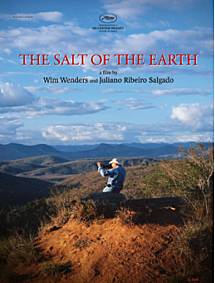 The Salt of the Earth potrays the works of the Brazilian photographer Sebastião Salgado. It was directed in 2014 by Wim Wenders and Juliano Ribeiro Salgado (the son of the photographer).
The Salt of the Earth potrays the works of the Brazilian photographer Sebastião Salgado. It was directed in 2014 by Wim Wenders and Juliano Ribeiro Salgado (the son of the photographer).
Following the timeline of his life, the film uses his own photos and videos to illustrate Salgado's life and work beginning with his exile from Brazil to France and his subsequent transition from economist to artist and explorer. The film follows him as he travels around South America, including the countries neighboring his native Brazil, spending time among and photographing native tribes, living lives not much touched by the modern world. Next, Salgado traveled to the Sehel region of Africa, shown in unflinching and heartbreaking video and photographs. Salgado referred to the famine in Ethiopia as a problem with sharing, not just a natural disaster. He documented the largest ever refugee camps and the innumerable deaths that occurred there, from hunger, cholera, and cold. His work covering famine in Africa brought worldwide attention to the region and the underlying causes.
The film follows 40 years of Salgado's work from South America, to Africa, Europe, the Arctic, and back home to Brazil focusing on international conflicts, starvation and exodus, and natural landscapes in decline.
Watch his inspiring interview in TED at https://youtu.be/qH4GAXXH29s a collection of his photos at https://youtu.be/iPyGB5SN4hI and the film at https://youtu.be/Aw18hVK8124 (select 2D)
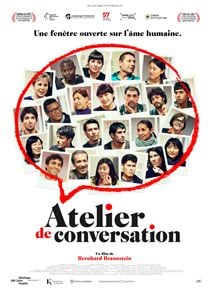
Ateliers de conversation is a documentary film by Berhhard Braunstein showing how people from all over the world meet on a weekly basis at the "Atelier de conversation" of the Bibliothèque publique d'information located in the Centre Pompidou in Paris to practice their French. Refugees of war sit together with businessmen, easy-going students next to victims of political persecution. As diverse as its members might be, they have one goal in common that connects all of them: to learn the language and find companions while living abroad - if not to survive living abroad. At this hopeful place social and cultural borders dissolve. People, who otherwise would never be in touch, meet eye to eye.
Watch the trailer at https://youtu.be/lmsdUTw3i4w and the film at http://www.allocine.fr